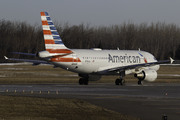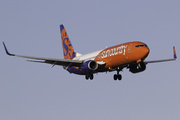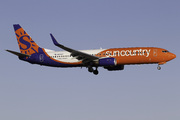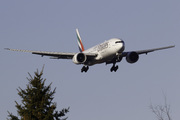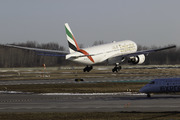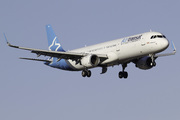Dépêches
Airforwarders Assoc. Urges Congress to Maintain Risk-Based Security, Fund CCSP
Dépèche transmise le 18 mars 2009 par Business Wire
WASHINGTON--(BUSINESS WIRE)--Despite significant progress being made in screening cargo on passenger planes, there are still major challenges ahead on the path to safeguarding air cargo in this country according to the Airforwarders Association (AfA). Testifying today before the House Homeland Security Subcommittee on Transportation Security and Infrastructure Protection, Brandon Fried, executive director of the AfA, acknowledged the progress made in reaching the 50 percent milestone, but warned that there are three primary challenges still facing the TSA in achieving the 100 percent screening mandate by the August 2010 deadline.
“The ease of attaining the first portion of the screening mandate should be both a sign of encouragement and caution,” said Brandon Fried. “It proves that our industry and its airline partners can collectively rise to any challenge. However, serious issues have yet to be resolved, including the lack of approved pallet screening technology, ongoing financial barriers to participation, and the future of air cargo security policy in general.”
The most troublesome (or problematic) of these issues is the lack of funds beyond those provided to pilot program participants to purchase technology. A number of forwarders have taken on the task of self-funding the effort for business reasons, and that initiative is to be commended. While a forwarder has a number of options under CSSP even as a non-participant, including airline screening, independent screening at a ‘carwash’, consortiums, and hand screening, the Airforwarders Association believes that capital should not be a deterrent to those in search of advanced, in-house security programs.
“We support a variety of options for screening of cargo on passenger planes, but those must be options that work,” said Fried. “They must offer affordable alternatives, which is best ensured through marketplace competition; must be efficient in terms of rapidly screening cargo through the facility in order to ensure cut off times are maintained; and they must be effective by allowing warranties and cargo integrity to remain intact while assuring security. CCSP meets these criteria, while other options that are more of a centralized approach have yet to show they can function as well.”
Finally, Fried’s testimony concluded with a reminder to the Subcommittee members that the mission of the TSA is to secure our nation’s borders while maintaining an efficient flow of commerce. Noted experts, including the GAO, have stated that abandoning a risk-based security program in favor of screening may actually make the nation less safe. TSA has limited resources, both financially and in terms of personnel, and it is an unwise use of those finite dollars and employees to treat each piece of cargo as if it has the same threat level.
- 18/04 Friedrichshafen 2024 : Robin "toujours présent et pour longtemps"
- 18/04Friedrichshafen 2024 : la FFPLUM dément le passage de tous les ULM 3 axes à 600kg
- 18/04 Friedrichshafen 2024 : visite d'un Pilatus PC-12 (photos)
- 18/04 Friedrichshafen 2024 : Beringer présente au salon
- 17/04 Friedrichshafen 2024 : Cirrus Aircraft présente son SR G7
- 17/04 Friedrichshafen 2024 : Piper présente son M700 Fury
- 17/04 Friedrichshafen 2024 : Junkers dévoile son A50 Heritage
- 17/04 Friedrichshafen 2024 : la société E-Props présente au salon
- 17/04 Le 30e salon de Friedrichshafen a ouvert ses portes
- 15/04 Airbus : commandes et livraisons de mars 2024
- 15/04 easyJet renforce ses dessertes depuis la France vers Budapest
- 15/04 Vueling inaugure sa liaison entre Orly et Heathrow
- 12/04 British Airways ouvre les candidatures pour son programme cadets Speedbird Pilot Academy
- 12/04 Icelandair et Expedia annoncent un nouveau partenariat
- 12/04 Turkish Airlines : résultats 2023
- 12/04 easyJet annonce deux nouvelles lignes depuis Lyon
- 12/04 Le premier Embraer E190 P2F fait son vol inaugural
- 12/04 Volotea obtient l'agrément complet pour son Système de Management de la Sécurité
- 12/04 easyJet et l'UNICEF lancent la campagne "Every Child Can Fly"
- 12/04 Emirates fête ses 30 ans de présence à l'aéroport de Nice


